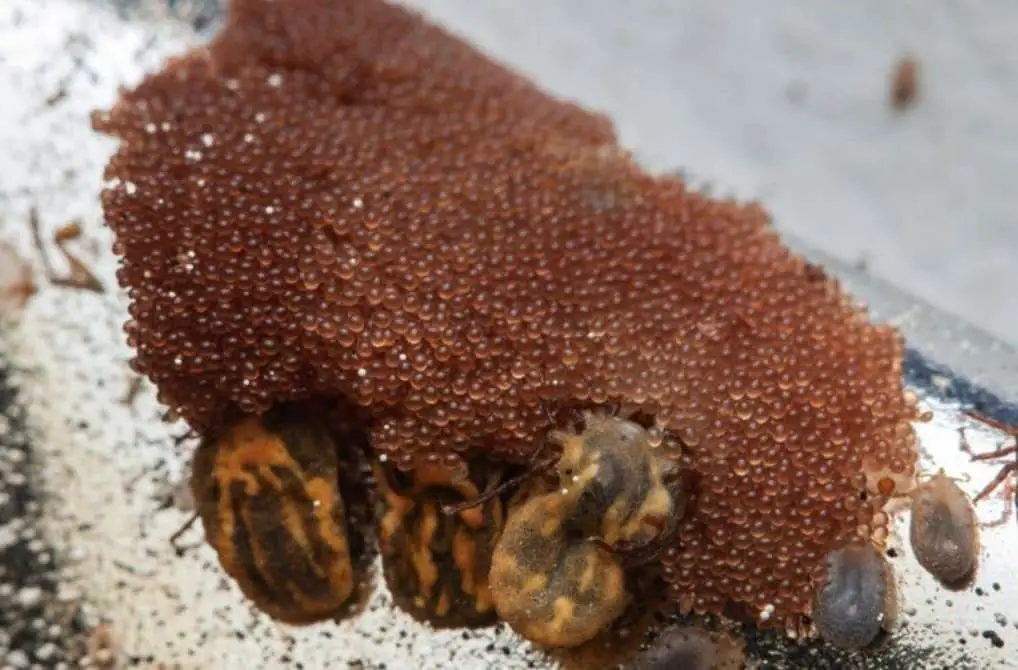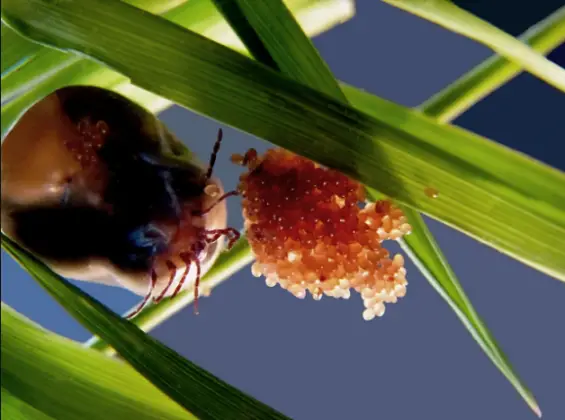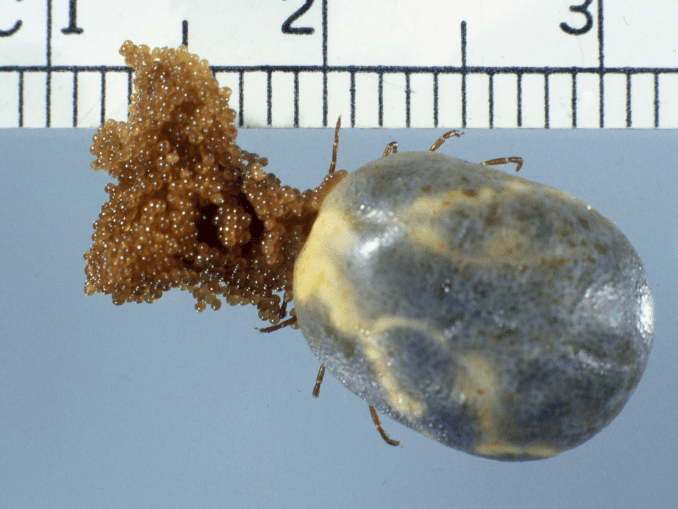Nobody wants to share their space with uninvited guests, especially when those guests are ticks. Unlike other pests, ticks pose serious health risks, transmitting diseases like Lyme disease and Rocky Mountain Spotted Fever. Their tiny eggs are often overlooked, making them even more insidious. Let’s explore how to spot tick eggs, eliminate infestations, and keep your home and yard tick-free.
Why Ticks Are More Than Just a Nuisance

Ticks are more than irritating pests; they’re potential carriers of harmful diseases. These bloodsuckers latch onto humans or pets and can transmit bacteria, viruses, and parasites through their bites. While adult ticks are troubling enough, their eggs are the starting point of an infestation.
Unlike many household pests, ticks are stealthy. Their eggs are tiny and well-hidden, making early detection crucial for preventing outbreaks.
Identifying Tick Eggs: What to Look For
Tick eggs are incredibly small, roughly the size of poppy seeds. Newly laid eggs are translucent and oblong, becoming slightly opaque with a pale yellow or light brown hue over time. They’re typically laid in clusters, which can contain thousands of eggs. The eggs often appear smooth and shiny under close observation.
Common Places Tick Eggs Are Found
- Low-hanging plants and foliage
- Tall grass or overgrown areas
- Leaf piles or mulch beds
- Damp, shaded corners of your yard or home
If you’re spending time outdoors—gardening, hiking, or even lounging in your backyard—keep an eye out for these tiny clusters. Identifying them early is key to nipping an infestation in the bud.
What to Do If You Find Tick Eggs
Discovering tick eggs can be alarming, but acting quickly is essential. Follow these steps to safely eliminate them:
1. Avoid Direct Contact
Always wear gloves when dealing with tick eggs. Even though the eggs themselves may not transmit diseases, handling them carelessly increases the risk of exposure to pathogens from nearby adult ticks.
2. Collect and Identify
If you’re unsure whether the eggs belong to ticks, carefully collect a sample and consult a pest control expert or veterinarian. This ensures proper identification and targeted treatment.
3. Dispose of the Eggs Safely
Seal the eggs in a plastic bag and dispose of them in an outdoor trash bin. For a more thorough solution, submerge the eggs in soapy water or burn them to ensure they’re destroyed.
4. Treat the Area
After removing the eggs, clean the surrounding area with a strong disinfectant or pesticide designed to target ticks. This helps eliminate any lingering adults or larvae.
How to Prevent Tick Infestations in Your Yard

Ticks thrive in damp, overgrown, and cluttered environments. To make your yard less inviting to them, follow these preventative measures:
1. Keep Your Grass Short
Ticks prefer tall grass and weeds for laying eggs and hiding. Regularly mowing your lawn and trimming overgrown vegetation reduces their breeding grounds.
2. Eliminate Leaf Litter
Ticks love damp, dark places like leaf piles. Rake and dispose of leaves regularly, especially in the fall.
3. Use Tick-Repellent Landscaping
Incorporate plants that naturally repel ticks, such as rosemary, lavender, and chrysanthemums. These not only beautify your yard but also act as natural deterrents.
4. Create Dry Barriers
Ticks struggle to cross dry, sunny areas. Add mulch, gravel, or wood chips around your yard’s perimeter or high-traffic areas to create natural barriers.
5. Control Wildlife Access
Ticks often hitch rides on deer, rodents, and other wildlife. Install fences or barriers to limit their access to your yard, and avoid feeding animals that might attract them.
Natural and Chemical Repellents: What Works Best?

If landscaping and maintenance aren’t enough, you can boost your defenses with repellents. Here’s how to choose between natural and chemical options:
Natural Tick Repellents
Essential oils like cedarwood, eucalyptus, and peppermint can deter ticks without introducing harsh chemicals. Dilute these oils with water and spray them around your yard or outdoor furniture.
Chemical Tick Treatments
For severe infestations, chemical insecticides may be necessary. Choose tick-specific products and follow the manufacturer’s guidelines for safe application. Always prioritize environmentally friendly options when possible.
Keeping Your Home Tick-Free
Ticks aren’t just outdoor pests; they can easily invade your home by hitching a ride on pets, clothing, or firewood. To prevent them from taking up residence indoors:
1. Inspect Pets Regularly
Ticks often latch onto furry companions. Check your pets’ fur after outdoor activities, focusing on areas like their ears, neck, and paws.
2. Wash Clothing Immediately
Ticks can cling to clothing for days. Toss your outdoor clothes directly into the washing machine and follow up with a high-heat dryer cycle to kill any hidden ticks.
3. Vacuum Frequently
Ticks can hide in carpets, rugs, and upholstery. Vacuuming regularly disrupts their life cycle and removes eggs or larvae.
4. Seal Entry Points
Inspect windows, doors, and baseboards for gaps or cracks that ticks could use to enter your home. Use caulking or weather stripping to seal these openings.
Why Tick Prevention Matters
Beyond the annoyance of bites, ticks pose significant health risks to you and your family. Diseases like Lyme disease and Rocky Mountain Spotted Fever can have long-term effects if not treated promptly. By taking proactive steps to prevent and eliminate tick infestations, you’re safeguarding your health and creating a safer living environment.
Conclusion
Ticks are more than just unwelcome visitors—they’re a health hazard that requires swift and decisive action. From spotting their eggs to fortifying your yard and home, staying vigilant can make all the difference in preventing an infestation. With regular maintenance, natural deterrents, and quick responses to any signs of ticks, you can keep these pests at bay and enjoy your home and outdoor spaces without worry.
Take the time to assess your surroundings and put these strategies into action. After all, the best way to deal with ticks is to stop them before they start.


